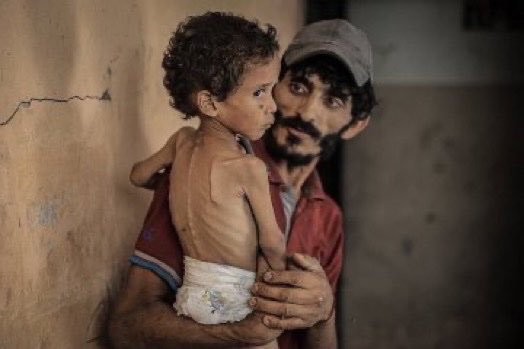GAZA CITY, Gaza Strip, July 27, 2025 — More than 100 international humanitarian and human rights organizations have issued a dire warning of mass starvation spreading across Gaza, attributing the escalating crisis to Israel’s blockade and military actions. The coalition, including prominent groups like Doctors Without Borders, Oxfam, and Save the Children, has called for an immediate ceasefire and the unrestricted flow of humanitarian aid to avert a deepening catastrophe.
The joint statement, released on July 23, described Gaza’s humanitarian situation as “cataclysmic,” with food, clean water, and medical supplies “totally depleted” due to Israel’s stringent restrictions on aid deliveries. “Our colleagues and those we serve are wasting away,” the organizations stated, noting that aid workers, doctors, and journalists are now fainting from hunger while attempting to provide relief. The United Nations reports that nearly one-third of Gaza’s 2.1 million residents are skipping meals for days, with 470,000 facing famine-like conditions. At least 111 people, including 80 children, have died of malnutrition since the war’s onset, with 43 deaths reported in the past week alone, according to Gaza’s Hamas-run health ministry.
Israel’s blockade, fully reinstated in March 2025 after a brief ceasefire, has severely restricted aid, with only a trickle allowed since May through the controversial Gaza Humanitarian Foundation (GHF), a U.S.- and Israel-backed distribution system. The UN and aid groups criticize the GHF for operating within Israeli military zones, alleging it violates humanitarian principles. Reports indicate over 1,000 Palestinians have been killed by Israeli forces since May while attempting to access food at GHF sites, with 766 deaths near these hubs and 288 near UN convoys, according to the UN human rights office.
Philippe Lazzarini, head of the UN Relief and Works Agency (UNRWA), described the situation as a “man-made disaster,” stating, “People in Gaza are neither dead nor alive, they are walking corpses.” The World Health Organization’s director-general, Tedros Adhanom Ghebreyesus, echoed this, calling the starvation crisis “man-made” due to the blockade. Hospitals, overwhelmed by casualties and lacking supplies, report skeletal children filling wards, with diseases like acute watery diarrhea spreading rapidly.
Israel denies responsibility for the food shortages, claiming Hamas diverts aid for profit and asserting that 950 trucks’ worth of aid await distribution inside Gaza. Israeli spokesperson David Mencer stated, “There is no famine caused by Israel. This is a man-made shortage engineered by Hamas.” Hamas has rejected these allegations, demanding a permanent ceasefire and Israeli withdrawal as conditions for releasing remaining hostages.
Ceasefire negotiations, mediated by Qatar, Egypt, and the U.S., have faltered. On July 24, U.S. envoy Steve Witkoff and Israeli negotiators withdrew from Doha talks, citing Hamas’s “lack of desire” for a deal. The proposed agreement included a 60-day ceasefire, the release of 10 living hostages and 18 bodies by Hamas, and the exchange of Palestinian prisoners, alongside increased aid flows. Hamas insists on a full Israeli withdrawal and a permanent truce, conditions Israel has rejected. Witkoff indicated the U.S. is exploring “alternative options” to secure hostages and stabilize Gaza, though details remain unclear.
International condemnation is mounting. The UK, France, Germany, and 25 other nations issued a joint statement on July 21, labeling Israel’s aid restrictions “unacceptable” and urging an immediate end to the war. British Prime Minister Keir Starmer announced an emergency call with France and Germany to address the crisis, stating, “The suffering and starvation in Gaza is unspeakable and indefensible.” France’s recognition of Palestine as a state on July 24 drew praise from Hamas and criticism from Israeli leaders.
As Israeli military operations intensify, including recent strikes in Deir al-Balah killing 89 people in 24 hours, aid groups warn that Gaza’s healthcare system is collapsing, with only one functioning hospital in Rafah. The Red Cross reported treating over 80,240 patients, but dwindling supplies threaten further care. Airdrops and newly announced “humanitarian corridors” by Israel, starting July 26, have been dismissed by aid organizations as inefficient and dangerous.
The crisis continues to escalate, with no immediate resolution in sight. Humanitarian groups are urging global action to lift the blockade and restore UN-led aid distribution to prevent further loss of life.




































